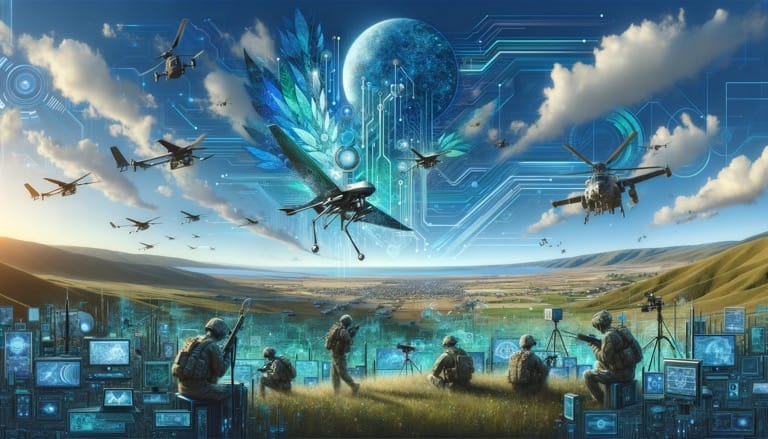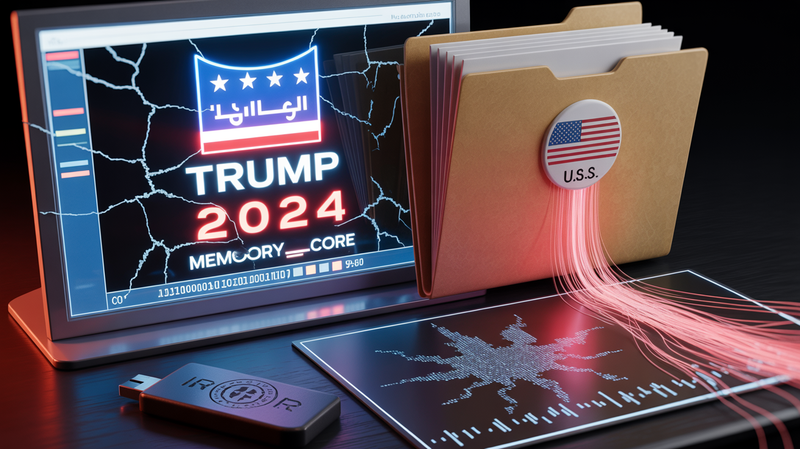The Unseen Battlefield: Ukraine's Transformation into an AI Military Lab
Imagine a world where the lines between digital innovation and military strategy blur, creating a real-time testing ground for some of the most advanced technologies. This is not a scene from a futuristic novel but a reality unfolding in Ukraine, where the country has become an unexpected laboratory for artificial
Imagine a world where the lines between digital innovation and military strategy blur, creating a real-time testing ground for some of the most advanced technologies. This is not a scene from a futuristic novel but a reality unfolding in Ukraine, where the country has become an unexpected laboratory for artificial intelligence (AI) in warfare.
As reported by The Time, the ongoing conflict in Ukraine has attracted the attention of technology giants such as Microsoft, Amazon, Google, Starlink, and Clearview. These companies are leveraging the situation to test their AI developments under the harsh and unpredictable conditions of real-world combat. This collaboration has turned the warzone into a unique proving ground for AI technologies, ranging from facial recognition software to sophisticated communication and surveillance systems.
The involvement of these tech behemoths in Ukraine's conflict underscores a significant shift in modern warfare. AI is no longer a distant dream or confined to controlled environments; it's being deployed on the battlefield, reshaping how wars are fought and potentially the outcomes of these conflicts. The use of AI in Ukraine represents a pivotal moment in military history, highlighting the increasing reliance on technology to gain strategic advantages.
This real-world application of AI in military operations raises profound questions about the future of warfare, ethics, and the role of technology in conflict resolution. For instance, Clearview's facial recognition software, initially designed for civilian use, is now repurposed for identifying combatants. Meanwhile, companies like Starlink are providing crucial satellite internet services, ensuring communication lines remain open even in besieged areas.
The story of AI's role in Ukraine is not just about the technology itself but about the human lives it impacts. Soldiers on the ground are experiencing firsthand the benefits and challenges of integrating AI into their strategies, while civilians are caught in the crossfire of an increasingly digitized conflict.
This unfolding narrative in Ukraine offers a unique lens through which we can examine the evolving landscape of warfare, the ethical implications of AI in combat, and the future role of technology in global conflicts. It prompts us to consider not only the potential of AI to change the face of war but also the responsibility of those who wield it. As we stand at the precipice of a new era in military technology, we must ask ourselves: How do we navigate the delicate balance between innovation and ethics, ensuring that advancements in AI serve humanity's best interests?
The situation in Ukraine serves as a reminder of the power and peril of AI in modern warfare. It invites readers, policymakers, and tech developers alike to reflect on the implications of these technologies and to engage in a broader conversation about the future we want to create. As we delve deeper into this new frontier, let us be guided by the principles of accountability, transparency, and respect for human dignity.
Navigating the Future: The Ethical and Strategic Implications of AI in Warfare
Continuing from our exploration into Ukraine's transformation into an AI military lab, we delve deeper into the nuances of this technological frontier.
Expert Insights:
The involvement of technology giants in Ukraine has sparked a diverse range of opinions. Dr. Alex Hartman, a military technology researcher, notes, "The use of AI in conflict zones presents both opportunities and challenges. It can enhance operational efficiency but also raises critical questions about accountability." Experts like Dr. Hartman underscore the importance of establishing robust ethical guidelines to govern the use of AI in military contexts, ensuring that innovations enhance security without compromising human values.
Technological Details:
The AI technologies being tested in Ukraine range from facial recognition to autonomous drones. Facial recognition technology, for example, uses complex algorithms to analyze images and identify individuals, even in challenging conditions. Meanwhile, AI-powered drones can perform reconnaissance missions, offering real-time data without risking human lives. These technologies represent a significant leap forward in military capabilities, but also introduce vulnerabilities, such as the potential for AI systems to be deceived or hacked.
International Perspective:
The global response to AI in warfare is mixed. While some nations advocate for the development and deployment of AI technologies as a means to maintain strategic advantages, others call for international treaties to regulate or limit their use. The United Nations has hosted discussions on lethal autonomous weapons systems, reflecting a growing concern over the implications of fully autonomous AI in combat. This debate highlights the need for a collective approach to manage the advancements in military AI, balancing innovation with international security and human rights.
Ethical and Moral Questions:
The ethical considerations surrounding AI in warfare are profound. One of the most contentious issues is the prospect of fully autonomous weapons systems capable of making life-or-death decisions without human intervention. Critics argue that delegating such decisions to machines undermines the moral responsibility inherent in warfare, potentially leading to unintended consequences. Additionally, there's the issue of AI bias and the risk of collateral damage, emphasizing the need for stringent ethical standards and oversight.
Looking Ahead:
As we look to the future, the trajectory of AI in military applications appears poised to redefine the nature of conflict. Experts predict an increase in cyber warfare, the development of AI-driven defense systems, and the potential for AI to predict and preemptively address security threats. However, this future also necessitates a global dialogue on the rules of engagement, with a focus on safeguarding human dignity and preventing an arms race in AI technologies.
In conclusion, the integration of AI into military operations presents a paradigm shift in warfare. The case of Ukraine serves as a critical case study for the world, offering lessons on the potential benefits and pitfalls of AI in conflict. As we navigate this new era, the collective wisdom of the global community, guided by ethical principles and international cooperation, will be paramount in ensuring that AI serves as a tool for peace and security, rather than a catalyst for further escalation.





